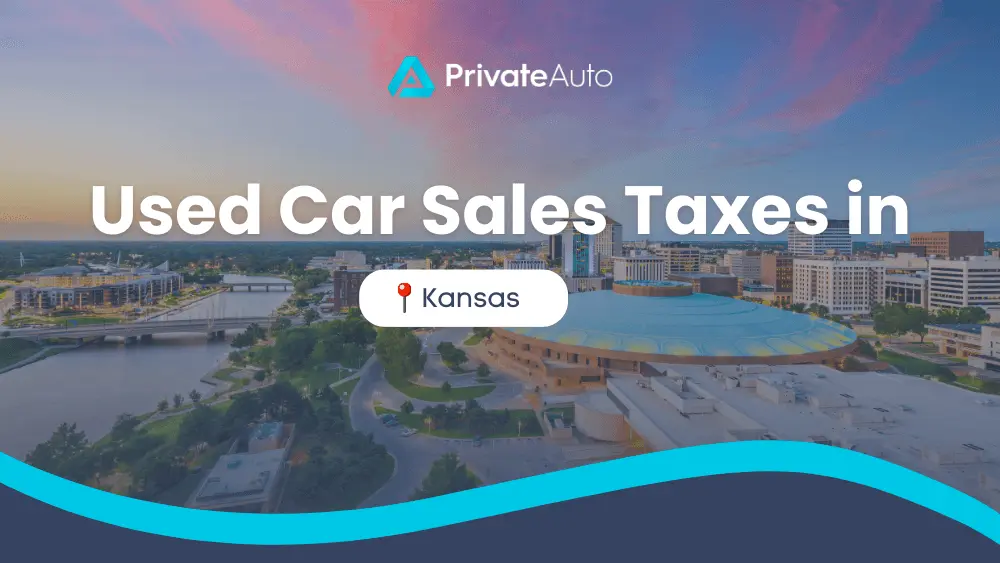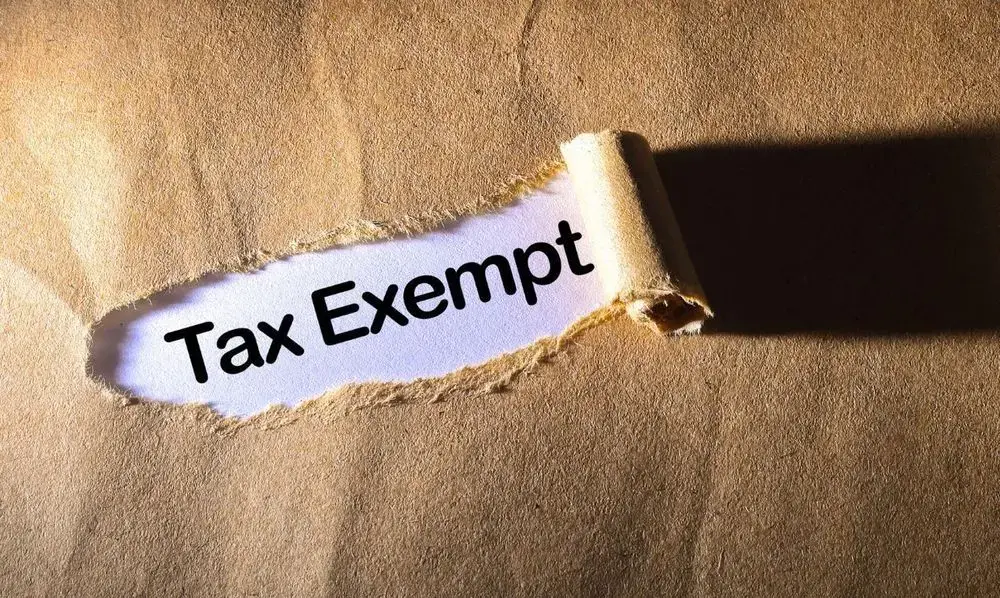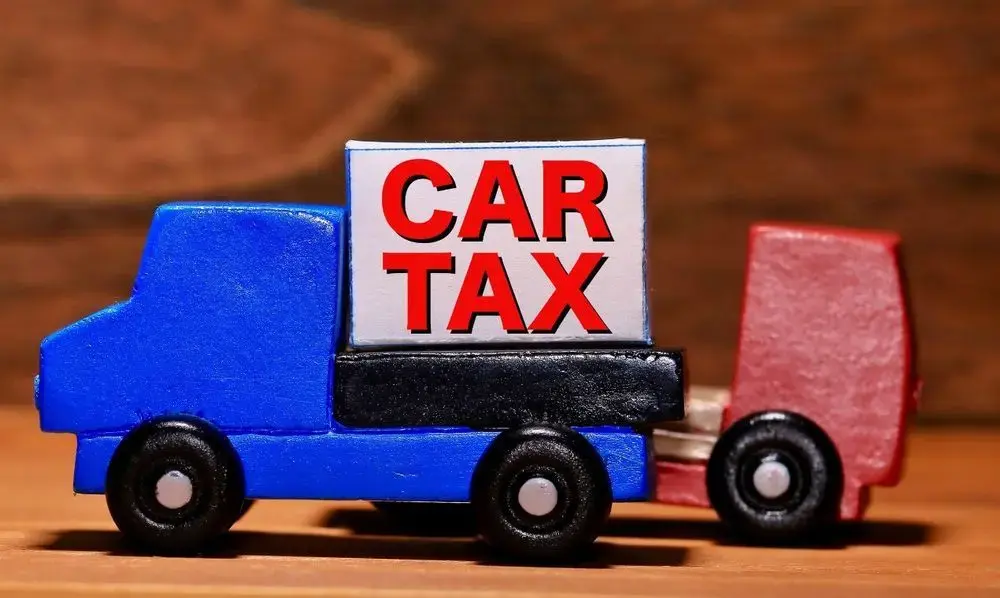Kansas charges 6.5% of your vehicle’s purchase price. On top of that, you may owe local taxes as well. And then there are the fees.
Keep reading to get the scoop on Kansas vehicle sales taxes and fees.
How much sales tax will I pay?
Do you Pay Taxes When you Purchase a Car From a Private Party in Kansas?
When making a car purchase in Kansas, you’ll pay 6.5% of the vehicle’s purchase price, whether you buy from a private seller or a car dealer. Kansas sales tax law does not discriminate between the two. Unless you qualify for a tax exemption (discussed below), you have to pay tax on your vehicle purchase.How does KS calculate taxes?
How Local Vehicle Sales Tax Works In Kansas
Understanding the Tax Basis of a Car Sale
Car sales tax is owed on the value of the car you purchased. The value is assumed to be the car’s purchase price, unless the purchase price is suspiciously low.
Some people get the brilliant idea to negotiate an artificially low purchase price, then pay the difference in a side transaction. Don’t do this; your county treasurer’s office is way ahead of you.
The county treasurer establishes what the car is worth on the open market (its fair market value, or FMV) by referring to the NADA value or other reliable sources on used car prices.
If the county treasurer’s office establishes that the car’s FMV is significantly greater than its purchase price, they can opt to base the tax on the NADA assessed value.
Note that underreporting the purchase price of a vehicle in order to avoid paying sales tax is illegal.
What is compensating use tax?
What is the Compensating Use Tax?
The compensating use tax is a percentage of a car’s purchase price owed to the state of Kansas when a car is brought into the state for registration.
When purchasing a vehicle out-of-state you will have to pay a 6.5% use tax (the same rate as the sales tax) when you register the car in Kansas. On top of that, you may owe local sales taxes as well.
If you paid sales tax on car purchases in another state, Kansas deducts that tax so that you are not taxed twice. There are four potential scenarios (leaving out local taxes for simplicity).
1. If you paid less than 6.5%, you will have to pay the difference. In which case Kansas charges you the difference. Let’s say you bought a used car in Iowa for $25,000. Iowa sales tax rates are 5%, so you paid $1,250 (.05 X $25,000) in Iowa tax. When you go to register your car in Kansas, your total tax bill will be $1,625 minus the $1,250 you already paid in Kansas. You can expect to pay $375 to Kansas.
2. You paid exactly 6.5% sales tax in Arkansas or one of the other states with the same 6.5% sales tax rate as Kansas, in which case Kansas will give you a pass.
3. You paid no sales tax in another state. Let’s say you bought a used car in Montana and didn’t pay sales tax, given Montana’s 0% tax rate. You’ll pay Kansas 6.5% use tax.
4. You paid more than 6.5% in the other state (for example, Tennessee levies a 7% tax on every used vehicle purchase). We wish we could tell you that Kansas will give you a refund, but no. At least they won’t charge you any more tax.
How to avoid paying sales tax in Kansas?
How to Avoid Paying Sales Tax on Vehicles in Kansas?
Motor vehicle taxes are part of our lives. There are the only two ways we know of to avoid paying sales tax on a vehicle purchase. 1. Move to a state that doesn’t have a vehicle sales tax and buy a car there. 2. Meet a sales tax exemption in Kansas.Do I qualify for a tax exemption?
Do I qualify for a tax exemption?
Kansas Car Sales Tax Exemptions
Here are the exemptions for Kansas motor vehicle sales taxes:
1. Transfers made solely in exchange for stock. There is no tax due when an individual transfers a vehicle to a corporation solely in exchange for stock in the corporation. If the individual receives anything other than stock in the corporation, the transfer is subject to sales tax based on the vehicle’s fair market value.
2. Sales between members of one’s immediate family. The sale or transfer of a car to a family member is tax-free.
3. Vehicles purchased by U.S. government agencies and instrumentalities.
4. Vehicles purchased by the state of Kansas and Kansas political subdivisions (cities, counties, school districts, etc.)
5. Vehicles purchased for use by elementary and secondary schools .
6. Vehicles purchased by parent-teacher organizations (PTA or PTO).
7. Nonprofit organizations.
License Plates, Title And Registration Fees in Kansas
In addition to vehicle sales taxes, you owe other fees when buying a car and registering it in Kansas, such as a registration fee and a vehicle title transfer fee.
To register your vehicle at the Kansas county treasurer’s office, you must show proof of car insurance. First-time passenger vehicle registration costs $42.50 or $52.25, depending on the gross weight of your vehicle, plus the $10 title fee.
Kansas’s standard license plate fee is included in the registration fee. A personalized plate costs $45.50.
Is it better to go to a dealer?
Is Purchasing a Car from a Dealer Better?
Many people believe that buying a car from a Kansas dealer will save them money. Going to a Kansas dealer is more expensive.
- Dealerships charge documentation fees above and beyond all the other Kansas taxes and fees you have to pay (the other taxes and fees are exactly the same whether you buy from a dealer or a private seller, by the way). An average documentation fee in Kansas is $285.
- Used car dealerships usually have higher prices. Their business model is based on buying low and selling high in order to generate the spread that allows them to stay in business. Skip the middleman and deal directly with private sellers to get the best deals.
We admit that dealers provide a level of convenience that you do not typically get when buying from a private seller. That is, after all, why we exist. PrivateAuto puts dealer-like convenience in the palm of your hand while also allowing you to transact with regular people like yourself.
When you buy a used car from a private seller on PrivateAuto, you avoid the doc fee and get a better deal.
Kansas sales tax calculator
Kansas Car Sales Tax Calculator
Sell or Buy a Vehicle Online With PrivateAuto
PrivateAuto is the only transactional marketplace where you can buy and sell used vehicles safely and conveniently.
Browse used cars for sale
Our innovative platform connects buyers and sellers and gives them all the tools to complete the deal, from in-app financing to secure messaging to integrated payments via our banking gateway, PrivateAuto Pay. You can also schedule a test drive and negotiate the price without ever disclosing your personal information.
Here are the steps to selling your car in Kansas.
1. Gather the required paperwork for selling a vehicle in Kansas
2. Register on PrivateAuto and get verified
3. List your car
4. Set your terms
5. Vet incoming offers
6. Choose a buyer
7. Schedule a meeting
8. E-sign documents
9. Get paid, instantly
10. Transfer title
Kansas Vehicle Sales Tax FAQ
Does Kansas have excise taxes?
Kansas has several excise taxes. These include:
– Tire excise tax
– Vehicle rental excise tax
– Liquor drink tax
– Cigarette and tobacco products tax
Do I need to submit a vehicle sales tax exemption certificate in Kansas?
Yes, if you are exempt from Kansas vehicle sales tax, you must present an exemption certificate to the dealer when you purchase the vehicle. The exemption certificate will show the DOR that you are not required to pay sales tax, and they will not charge you sales tax on the vehicle.
What is a quiet title in Kansas?
A quiet title is a legal action that is used to resolve a dispute over ownership of property. In Kansas, a quiet title action can be filed for both real property (land and buildings) and personal property (vehicles, furniture, etc.).
The purpose of a quiet title action is to clear up any uncertainty about who owns the property. This can be helpful if there is a competing claim to ownership, or if there is a cloud on the title (such as a lien or judgment).
To file a quiet title action in Kansas, you must file a petition with the court. The petition must state the following:
– Your name and the name of the person who is claiming ownership of the property.
– The property that is in dispute.
– The basis for your claim of ownership.
– Any evidence that you have to support your claim.
– The court will then issue a summons to the person who is claiming ownership of the property. The person who is claiming ownership will have an opportunity to respond to the petition.
After the parties have filed their responses, the court will hold a hearing. At the hearing, the court will hear evidence from both sides and decide who owns the property.
The filing fee for a quiet title action in Kansas is $196.50. The cost of an attorney to file a quiet title action will vary depending on the complexity of the case.
What does PWR mean on Kansas plates?
In Kansas, the vertical PWR appears on certain commercial license plates. The plates are missing a yearly registration decal that indicates the month and year the plates expire and identifies vehicles registered as “power units.”
Is Kansas or Missouri more tax friendly?
Kansas and Missouri have similar income taxes and are both in the lower half of the country. Missouri taxes are slightly lower overall than Kansas taxes, which average 3.75%, but the difference is minor.
Where do I register my car in Kansas?
Your vehicle can be registered at the county treasurer’s office. This is the most common location in Kansas to register your vehicle. You can locate your county treasurer’s office by searching online or calling the Kansas Department of Revenue.
Which states have the lowest car sales tax rates?
The states with the cheapest car tax are Alaska, Delaware, Montana, New Hampshire, and Oregon, with a tax rate of zero. Nevada and Hawaii have a zero tax rate on private-party car sales, but not on dealership purchases.
With the exception of the above states, all US states charge sales tax on private sales. Oklahoma, North Dakota, North Carolina, Colorado, Wyoming, and Alabama charge 4.5% or less vehicle sales tax.
Additional Reading
What is a Salvage Title?
Should I Take off my License Plates When Selling a Car in Kansas?
Can I Transfer a Car Title Online?
How do I Transfer a Vehicle Title in Kansas?
What do I do With my License Plates After Selling a Car?
Compare Car Insurance Rates
How do I Replace a Lost Car Title?
Vehicle Loan Calculator

Jacob Andra
Contributing Author
Jacob Andra is an entrepreneur, author, and technology expert living in Salt Lake City, Utah. As a stakeholder in PrivateAuto, Jacob is passionate about how our technology is bringing peer-to-peer car sales into the 21st century. When he’s not working, Jacob can be found playing pickleball, climbing mountains, or spending time with his family.





